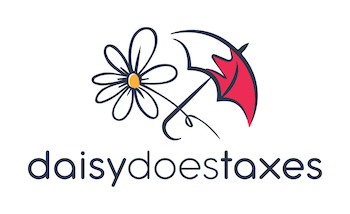TAX 101
Frequently Asked Questions
Not sure where to start? Here are some of the most common questions new clients have for us at Daisy Does Taxes.
As a sex worker myself, I have the unique ability to utilize my knowledge of the adult industry when analyzing tax laws. I have worked as a sex worker in many different roles, including in-person and online, so I have first-hand experience and know what it takes to run various types of sex work businesses. I can help you identify specific write-offs that are unique to your type of work. You’ll never have to explain to me why a ball-gag is a valid business expense!
I am an Enrolled Agent, meaning that I am enrolled to practice and represent taxpayers before the Internal Revenue Service in all tax matters. Learn more about Enrolled Agents and what we do here.
Yes! You will need to file a tax return to show how much income your business earned, and how much your business spent in valid write-offs that year. Even if you had a net loss (spent more than you earned), this information needs to be reported on your tax return each year.
There are several ways to make payments to the IRS, by mail, over the phone, and online with a bank account or credit/debit card. I personally think the easiest method is to pay online with a bank account using the IRS Direct Pay system. We even have a helpful video guide explaining how to do so on our YouTube.
Yes! If you receive cash income in exchange for a product or a service, you are considered self-employed, and will be taxed on that income. You’ll need to file a tax return to report your self-employment earnings and valid business expenses for the year.
We created a calendar with every federal tax deadline for 2023 to make this easy for you. Check it out for FREE here.
There is no one-size-fits-all answer. I would be happy to chat with you about your business and help you decide if an LLC or an S corp is the right choice for you.
If you expect to owe $1,000 or more at the end of the year, and your withholdings cover less than 90% of your tax owed, the IRS expects you to make tax payments each quarter. Most self-employed folks are required to make quarterly payments. If you do not pay your taxes quarterly, the IRS assesses a small interest penalty for each month that your payments are late, which can add up throughout the year. If you want help with making a quarterly tax payment, we have a video guide on our YouTube.
A 1099 is an informational tax form that reports income a taxpayer received during the year. If you are self-employed, you may receive a 1099-NEC that reports your self-employment earnings that year. This is why most paysites will ask for your legal name, birth date, and SSN when you sign up. You will receive a copy of your 1099-NEC in January of the following year. The IRS receives a copy as well, so it is important to report this information on your tax return!
Yes! I regularly work with clients to file previous years’ tax returns.
There are two ways to file for a tax extension, you can fill out form 4768, either online using IRS Free File or by mail with a printed copy of the form. You can also make an Extension Payment online using a bank account. I personally think that making a payment is the easier of the two options, and you don’t have to make a full estimated tax payment, you can pay even just $1 and it will automatically enroll you for an extension. We have a video guide on how to make an extension payment on our YouTube.
Any payment received in exchange for a product or service is considered self-employment income and needs to be reported on your tax return. If you are unsure whether your Venmo/Cashapp/PayPal/Zelle income is taxable, I am happy to help. Ready to get started? Become a client here.
Of course! Whether you would like to file previous years’ tax returns, or current/future tax years only, I am happy to help.
If you are self-employed, you can write off my tax preparation and consulting services as a business expense!
It’s a form that reports information about the owners of any company located within the US. For more information on who needs to file a BOI report and how to file one check out this video on our YouTube.
Get in Touch
Ready to Get Started?
“This is my second year utilizing Daisy’s tax services and I couldn’t be happier. I get the peace of mind of knowing that I’ll feel comfortable and that my questions will be answered in a timely manner. Daisy and her team are extremely professional and my tax needs are always met. I will definitely be returning next tax season!”
“Daisy’s greatest quality as an accountant is not her vast understanding of tax prep guidelines, nor is it her firsthand knowledge of how finances play an important part of sex workers’ business. No, it is the fact that she truly CARES about her clients and goes above and beyond for us. Highly recommend!”
“Daisy made this process so easy and straightforward and it really helped alleviate the anxiety and stress I had about it. I will definitely be recommending her to my fellow SWers.”
"Daisy Does Taxes is so helpful, so patient and so fast! She helped me figure out the scary part of my taxes and made the whole experience enjoyable. I actually enjoyed doing my taxes! Recommending to all my friends!"
"Daisy made switching from yearly to quarterly taxes easy and straightforward, and was kind, knowledgeable, and responsive whenever I had any questions about the process…For sex workers especially, I highly recommend Daisy Does Taxes!”

